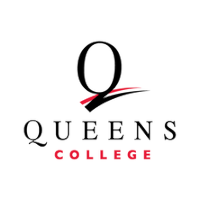
06 Dec PostDoc – How Dopamine Regulates Activity and Behavioral Energy Expenditure
My lab studies dopamine using mouse genetics, fast-scan cyclic voltammetry, patch-clamp electrophysiology and optogenetics and fiber photometry in awake, behaving animals. A central concern is how dopamine regulates activity and behavioral energy expenditure in decision-making, with emphasis on dopamine in obesity. Current projects focus on interactions between insulin and dopamine, studies of silent synapses and optical self-stimulation paradigms. We recently started investigating dopamine in anorexia nervosa, for which we just obtained funding that can support a second postdoc in the lab. This position will take primary responsibility for moving the anorexia project forward, but with opportunities to work on other projects as well, including basic science questions. Primary methods for this project will include fiber photometry, optogenetics and behavior. Learning other techniques, such as patch-clamp or fast-scan cyclic voltammetry possible, if interested and relevant to lab research. Postdocs are expected to take a leadership role in lab.
Queens College, in Queens, New York City is a moderate sized, predominantly undergraduate institution that is research active and trains graduate students (both doctoral and Master’s). The lab currently has one postdoc and this position would be the second. Postdocs work with students in the lab at all levels (doctoral, masters, undergraduate). Some teaching opportunities available, if interested. Queens is a diverse, vibrant borough with affordable living options with easy access to campus and Manhattan. Alternatively, living in Manhattan and Brooklyn are also option, with cost and commute time dependent upon specific location. NYC is a rich eco-system for neuroscience and our lab maintains collaborations and relationships with a network of neuroscientists both within CUNY and across other institutions.
Completed PhD required. The ideal candidate will have prior experience in at least one physiological method, such as optogenetics, fiber photometry, electrophysiology or anatomy techniques and a willingness to learn and develop skills in other methods as appropriate to answer the question(s) at hand.
Send cover letter with research interests and career goals, along with CV, to Jeff Beeler at jbeeler@qc.cuny.edu
NOTES:
Additional Salary Information: depends upon experience
Internal Number: 05282020
About Queens College/CUNY
Queen’s College is part of the CUNY system and located in NYC. The college has a diverse student body and offers undergraduate and graduate degrees, including, through the CUNY Graduate Center, doctoral programs in neuroscience. The QC Psychology Dept has a committed neuroscience faculty and a growing neuroscience program.


Sorry, the comment form is closed at this time.